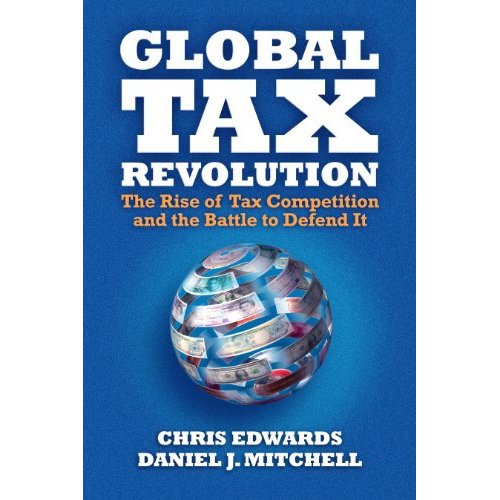CF&P’s Brian Garst, in an editorial for the Daily Caller yesterday, observes a disturbing trend in the rhetoric of this year’s Presidential campaign. An unholy alliance of political opportunists and long-time opponents of tax competition has formed and is playing on populist economic fears to advance an agenda that threatens to curtail basic economic liberties. Garst writes:
Central to the effort of undermining tax competition are attacks on so-called tax havens, or low-tax jurisdictions with more competitive tax rates than their high-tax, welfare-state counterparts. The Organization for Economic Cooperation and Development (OECD), a Paris-based bureaucracy that works to punish low-tax jurisdictions and hinder the flight of jobs and capital from high-tax nations, has long been leading the charge against tax competition. The OECD has over the years used blacklists, intimidation and skulduggery to enforce unjust protectionist measures on nations that adopt free-market policies. To make matters worse, the U.S. is the single biggest contributor to the OECD and funds a quarter of the organization’s budget.
…[A] centerpiece in the latest onslaught against Romney is a Vanity Fair article written by Nicholas Shaxson. Shaxson provides no evidence of wrongdoing on Romney’s behalf, instead relying on guilt by association and innuendo to give the impression of impropriety. Nor is he a disinterested reporter just covering a story. Rather, Shaxson is part of a network of advocates for bigger government who have realized that attacking capital mobility, tax planning or avoidance (the right to lawfully structure one’s assets to reduce tax burdens) and tax competition are surefire ways to promote statism.
Shaxson frequently writes for the Tax Justice Network (TJN), a left-wing group committed to “progressive taxation.” TJN has aligned itself with the violent Occupy movement, with a recent newsletter instructing its readers on “how to occupy.” The Tax Justice Network last year launched the FACT Coalition to push for higher taxes in the U.S., and the organization often works in concert with Democratic Senator Carl Levin in an effort to undermine tax competition and empower American tax collectors with a draconian mission of fiscal imperialism, a mandate to impose U.S. law on the rest of the world at significant cost to all parties.
Groups like TJN and politicians like Senator Levin use innocuous or misleading language to make their agendas sound reasonable. They claim to want “transparency” and “accountability,” but rather than wanting governments and those who hold power to be transparent and accountable to citizens, they want citizens to be transparent to government. In other words, they want an end to privacy.
CF&P has consistently fought efforts by the OECD to undermine tax competition for a dozen or so years now. Unfortunately, they’ve become increasingly emboldened since the election of Barack Obama, and as Richard Rahn highlighted in his recent Washington Times column, are now pushing for automatic exchange of tax information, a system which former House Majority Leader Dick Armey once said would create a “global network of tax police”:
The OECD has just released a report bragging about its “progress” in getting countries to engage in automatic sharing of tax information. The report states: “The automatic exchange of information involves the systematic and periodic transmission of ‘bulk’ taxpayer information by the source country to the residence country concerning various categories of income (e.g., dividends, interest, royalties, salaries and pensions).” The Obama administration is actively supporting this effort.
This means that the most vile governments will receive financial account information automatically about individuals from other countries.
The U.S. benefits tremendously from foreign investment, and there’s more than a little hypocrisy involved in the OECD criticizing nations for engaging in practices to attract foreign investment while we benefit from the same, though many of those criticizing tax competition today would prefer that no one benefit, the U.S. included.
If we tell foreign investors to go pound sand, there will be other, wiser nations ready to roll out the read carpet with less onerous tax policies and greater respect for financial privacy rights. They’ll also be the ones to benefit from increased economic growth and job production, while the U.S. economy continues to toil in mediocrity. That’s a bad prescription for the U.S. and the world. We should reject the efforts of the OECD and others to restrict tax competition.
Related CF&P pages:

